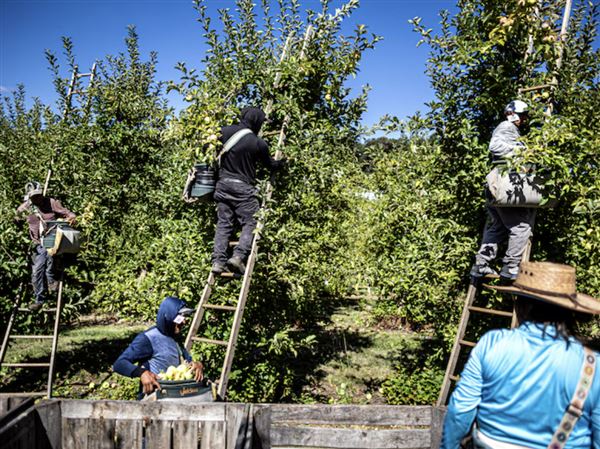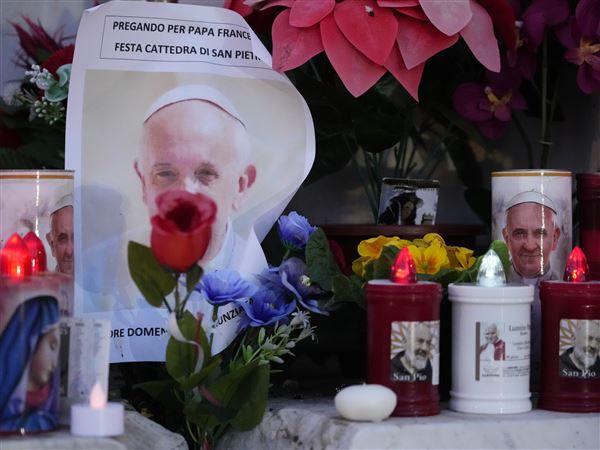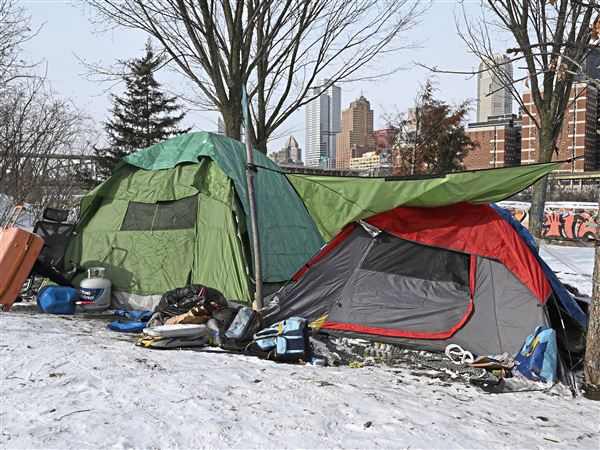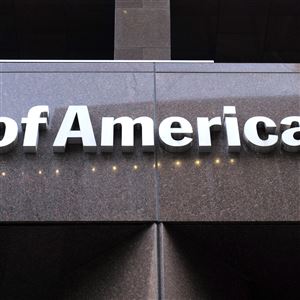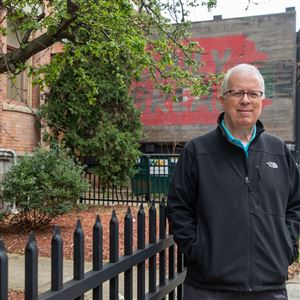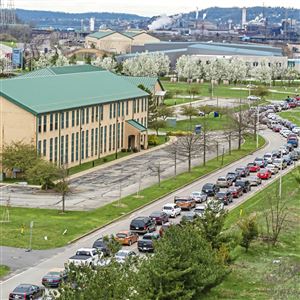Within three days of closing all of its fitness facilities on March 16, the YMCA of Greater Pittsburgh posted exercise programs on its website including yoga, pilates, boot camp and mindfulness.
Access to online classes has helped members stay engaged and 90% of them have not asked for refunds of their dues — providing a steady revenue stream the YMCA can tap during the COVID-19 crisis to provide meals for the needy and housing for low-income men at its North Side branch.
But like many nonprofit organizations that don’t have huge cash reserves, the YMCA is anxious about how it will emerge from the global pandemic crisis.
Besides membership dues, its other biggest source of revenue is before- and after-school child-care offered at 40 sites in the region. Those are closed, as are three child development centers and three overnight camps that operate year-round.
To help stem the losses, Kevin Bolding, president and chief executive and three other members of the YMCA’s executive team have taken a 75% cut in their salaries. Executive directors and vice presidents took a paycut of 30% to 35% and others on the full-time staff that totals 167 took a 10% cut in pay.
Part-timers were furloughed until the YMCA’s eight branches reopen. Board members and other stakeholders have stepped up with contributions, but “there’s still a huge gap there,” said Mr. Bolding.
“And it hurts,” he said.
Many nonprofits across the region are struggling to sustain staff and operations as they curtail revenue-generating activities and fundraising events to comply with state-imposed stay-at-home orders.
“What’s extremely concerning is that research has consistently shown most nonprofits have no operating margin,” said Peggy Morrison Outon, executive director at the Bayer Center for Nonprofit Management at Robert Morris University.
Some aid in federal stimulus package
A survey of 428 nonprofit leaders conducted by the Nonprofit Institute at the University of San Diego found many had reserves totaling two months or less of their operating budgets.
Since the onset of the pandemic in the U.S., 20% said they were unable to offer any programming and more than 50% said they were “very unlikely” or “somewhat unlikely” to be able to offer services two months from now.
Of those surveyed, 57% said they were likely to make payroll for the next four weeks but only 35% were sure they could in eight weeks.
The National Council of Jewish Women Pittsburgh Section — which supports causes such as a Squirrel Hill resource center for women in transition; a Back2School Store for needy children; and activities for children whose caregivers have protection-from-abuse orders — sent an email blast Wednesday seeking emergency gifts.
The NCJW has laid off some staff.
The organization noted that for decades it has held a “Stay at Home Ball” to raise money through mail and electronic donations instead of a fundraising gala. “Never has this approach been more relevant and appropriate,” wrote Teddi Horvitz, NCJW Pittsburgh president.
The Jewish Community Center of Greater Pittsburgh said Friday it has furloughed 350 part-time employees.
While most of the 135 full-time employees will be retained, many will have reduced hours and senior management will take pay cuts.
It will continue providing employee health-care benefits, even for those furloughed, until June 30.
The JCC closed its fitness and day-care facilities three weeks ago but continues to provide meals and health checks for seniors, and is hosting blood drives at its Squirrel Hill and Scott facilities.
Some relief for nonprofits is included in the $2 trillion federal stimulus package approved by Congress and signed by President Donald Trump.
Known as the Coronavirus Aid, Relief, and Economic Security Act (CARES), it includes a $350 billion loan program from the U.S. Small Business Administration for which nonprofits with fewer than 500 employees are eligible.
Nonprofits can receive up to 2½ times their monthly payroll costs to a maximum $10 million.
Nonprofits that apply must agree to use the funds to retain workers, pay mortgages, leases, or utility bills. Up to eight weeks of expenses can be forgiven, in essence converting the loan into a grant.
Ms. Outon worries some nonprofits may not be aware they are eligible.
During a virtual board meeting she tapped into last week with one nonprofit, “No one had heard of [the federal relief package],” said Ms. Outon. “I sent information to all of them and hope they can make use of it.”
Battered by the stock market
Individuals and organizations that donate to nonprofits may not be able to provide resources as they have in the past because of job loss or savings portfolios battered by huge declines in the stock market during the pandemic.
After the Great Recession of 2008-09, it took seven years for giving in the U.S. to return to pre-recession levels, said Bobbi Watt Geer, president and chief executive of United Way of Southwestern Pennsylvania.
United Way has put its outside contractors “on pause,” she said, but has not laid off any staff.
The agency is working closely with the Pittsburgh Foundation to determine pressing needs and distribute money from an emergency action fund seeded by the city’s four largest philanthropies — the Richard King Mellon Foundation, the Heinz Endowments, the Hillman Famly Foundations and the Pittsburgh Foundation.
A total $6.4 million had been committed by individuals, foundations and corporations as of April 1 — the date that nonprofits could begin applying for funds.
The Pittsburgh Foundation said priority would be given to small and mid-sized nonprofits, or those with annual budgets under $5 million, that serve communities with mostly low-income households.
The funding will include operating support for those nonprofits providing food and housing and to cover losses they might be experiencing.
Other organizations to be given priority include those that manage emergency funds to assist individuals impacted by the coronavirus; federally-qualified health centers and other community health centers; and small arts groups and individual artists whose productions were canceled between March 1 and June 30.
Grants are expected to range from $5,000 to $25,000.
Dave Coplan, executive director of the Human Services Center in Turtle Creek, said the food pantry at his center is likely to apply. The pantry is continuing operations at least through April with volunteers boxing items instead of allowing people to come in to make their selections.
Among the services Mr. Coplan’s agency has canceled is free tax preparation for people in the Turtle Creek area. “The average income of people we service is $11,000 and last year we did over 900 people’s taxes for free.”
The average refund for those people was $1,000, said Mr. Coplan.
“Talk about an economic stimulus. That’s real money in somebody’s pocket,” he noted.
’No margin for error’
One nonprofit fundraiser that hasn’t been scrapped is the annual Highmark Walk for a Healthy Community.
It’s gone virtual with donations being accepted online and participants encouraged to take real steps on their treadmills, outside or around the house between May 9 and June 30.
The event benefits 273 nonprofits in Pennsylvania and Delaware — including 93 in the Pittsburgh region — and last year raised more than $1.4 million in donations.
Highmark didn’t want to postpone it “because it’s very difficult to predict the quarantine period,” said Evan Frazier, senior vice president, community affairs for Highmark Health. “Now more than ever, these nonprofits need money … and they are doing critical work.”
In its fiscal year that ended March 30, Mr. Bolding said the YMCA was starting to put more cash aside and was rebounding from a troubled 2018 when it entered bankruptcy for three months, shuttered the Downtown Y and several other branches, and laid off administrative staff.
The coronavirus crisis struck just as the fiscal year was ending.
“The average Y operates on a 2% to 4% profit margin,” said Mr. Bolding. “That just means there’s no margin for error. We definitely can’t have catastrophes like this. Now we’re asking for favors from everyone.”
In a video fundraising pitch on the YMCA’s website, Mr. Bolding stands in an empty fitness facility at its Allegheny branch on the North Side. He points above him and notes that nearly 100 men reside on the building’s upper floors.
Many have lost their jobs because of the crisis and cannot pay their rent but the YMCA will continue to house them.
“These men are the perfect microcosm of what’s going on in the city,” said Mr. Bolding. “They are not homeless. They are the working poor. We’ve told them they don’t have to pay for two months and we’ll see how long this goes on.”
Joyce Gannon: jgannon@post-gazette.com or 412-263-1580.
Correction, posted April 6, 2020: The amount of money devoted in the Coronavirus Aid, Relief, and Economic Security Act (CARES) for a loan program from the U.S. Small Business Administration has been corrected.
First Published: April 5, 2020, 10:00 a.m.
